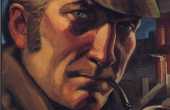kerrybaps
The writer of stories, reader of books, lover of cat pictures.
Junior Contributor II
- Lurker
- Sharp-Eyed Citizen
- ?
- Articles
1 - Featured
0 - Comments
5
- Ext. Comments
5 - Processed
4 - Revisions
2
- Topics
2 - Topics Taken
3 - Notes
7
- Topics Proc.
5 - Topics Rev.
1
- Points
193 - Rank
X - Score
101
Latest Articles
Latest Topics
Which antagonists deserve their own book and which do not?When Suzanne Collins announced that her new book would follow President Snow, the antagonist of the original Hunger Game series, there was uproar from select fans who had no trouble expressing their distaste for a prequel story that followed this character. However, there are books that follow villains or antagonists that people enjoy without fail – Game of Thrones has a huge cast of people that you wouldn't call 'good' necessarily, Vicious by V.E. Shwab protagonist is a 'villain'. Dexter and Breaking Bad were highly popular television series following characters that, in anyone else's story, would be the antagonist. What is it about an antagonist, a villain, that encourages an audience to want to hear their story? What is about the antagonist that has audiences not wanting to hear their story? I would argue its to do with how they became a villain themselves. Is it the world? Is it a privilege that has afforded them a certain belief system? Is it because the character is attractive?
|
Retellings and Nostalgia in LiteratureThere has been a surge in new and upcoming book releases being retellings of old stories, whether they be classics (for example, Frankenstein by Mary Shelley) or fairy tales (like Beauty and the Beast). What does this suggest about society at the moment, if literature is a reflection of our current state of mind? Are these retellings to do with nostalgia or a need to bring the past to the modern age? Do authors succeed in doing so? |
Latest Comments
| Deep Rock Galactic: The Intricacies of Storytelling | |
This is a super interesting piece. I too find it difficult to decide when it’s appropriate to separate art from the creator. In the end, I do feel like it comes down to whether they’re alive or not, and whether they have been idealized in the mind. For example, people like Roald Dahl and Dr Suess are questionable but they have such a bit impact on people’s childhood that the emotion their works created seems more powerful than the terrible beliefs they held. | Problematic Creators: How Do We Interact With Their Work? |
I really like this analysis. While we all know that the main villain is Voldemort, he isn’t the only adversary that Harry faces. Your comparisons to Harry’s foes in comparison to where he is in age and development was really interesting! | Harry Potter: The Importance of Antagonists |
I think adaptations from book to film are a hard transition to handle. Books are, usually, dense. They go into detail with things don’t translate to film. In turn, film production has a certain expectation of what should be included in a film in that demographic – for example, romance and mouthy antagonists and a dramatic climax. Books can have all these things but it’s when these are added or amped up for the film that tends to cause problems. | An Analysis into Screen Adaptations |
I think Mulan has the potential to break the curve by taking a different route to a familiar story. However, the power of nostalgia seems to be something of increasing effect over the public so it’s a difficult situation that Disney must balance upon. | Disney's Mulan is NOT a Musical & Why that Makes it a Superior Remake |

I do enjoy storytelling in video games – it’s so different from other things of storytelling in media.